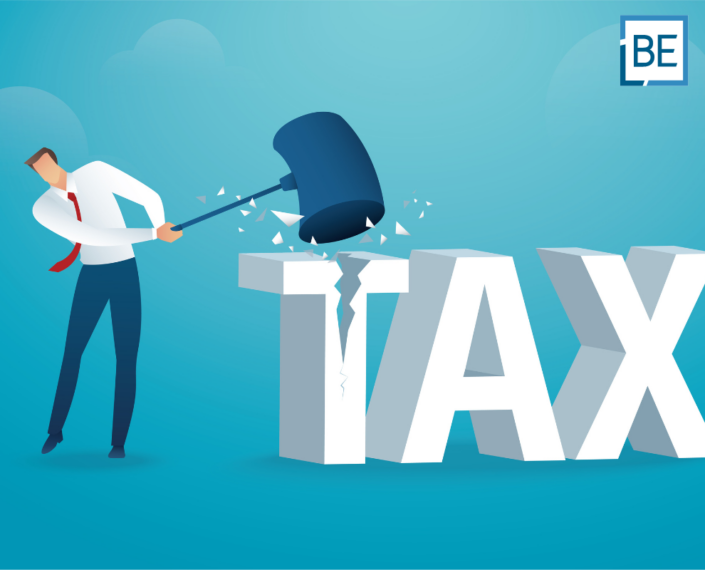Belaws Home ›› Thailand ›› Blog ›› How to Start a Franchise in Thailand
incorporation
How to Start a Franchise in Thailand
Starting a franchise business in Thailand can be an attractive option for both local and foreign investors. Thailand offers numerous opportunities for those looking to venture into franchising, with it being estimated that there are over 400 franchises and over 12,000 franchisees within the country.
In this blog post, we will explore the key aspects of starting a franchise in Thailand, including the legal framework, types of franchise businesses, and the benefits for both franchisors and franchisees.
Key points
- Franchising is a popular business structure in Thailand, with various different models available to investors.
- A Franchise Agreement is an important document that establishes the rights and obligations of both the franchisor and the franchisee for the business.
- Franchises offer significant advantages to both the franchisee and franchisor.
What is Franchising in Thailand?
Franchising is a business model that allows an established business, the franchisor, to allow another party, the franchisee, the right to operate a business using its established brand, business model, and intellectual property.
Franchising offers several advantages for both parties involved. For the franchisor, it provides an opportunity to expand their brand into new markets with minimal investment. For the franchisee, it offers a proven business model and support from the franchisor, reducing the risks associated with starting a new business from scratch.
Is Franchising Possible in Thailand?
Franchises are a popular business model in Thailand. However, there are no specific laws that govern the franchise transactions of business owners and franchising is primarily governed by the Civil and Commercial Laws. These laws establish the legal framework for franchising agreements and protect the rights of both franchisors and franchisees.
Thailand also has specific laws in place to protect the Intellectual Property of the Franchisor as well. These laws include:
The Trademark Act which protects the franchisor against any improper use of its trademark.
The Copyright Act which protects the franchisor from infringement of its copyright.
The Trade Secret Act can be relied upon to protect any essential trade secrets of a company.
It is important to note that Thailand is currently in the process of enacting specific legislation for franchises called the Franchise Business Act.
Can Foreigners Own 100% of a Franchise in Thailand?
In Thailand, the ability for foreigners to own 100% of a franchise depends on the specific business activity of the franchise. There are no specific laws that govern franchise transactions in Thailand, but the rights and obligations of parties involved in a franchise are protected by existing Thai laws.
Foreign franchise owners are not subject to Thai legal restrictions on foreign parties such as the Foreign Business Act and other local laws, permits, and regulations. These restrictions are handled by the franchisee, not the franchisor.
However, if a franchisee is fully owned or majority-owned by foreigners, most franchise activities are restricted and the company cannot engage in them without obtaining a Foreign Business Licence. In such cases, a Thai company which has at least one Thai national shareholder (who owns more than 50% of the shares) may be used.
What Types of Franchise Businesses are in Thailand?
Thailand offers various types of franchise businesses for those looking to invest. These include:
Local Franchises
Local franchises allow the franchisee to open a business in a specific city
Regional Franchises
Regional franchises allow representation of a brand at a regional level i.e. anywhere in Thailand.
International Franchises
International franchises enable foreign investors to represent an international brand in Thailand for example an American fast food chain opening a branch in Thailand.
Single and Multi Unit Franchises
Single-unit franchises operate in a single location or shop only. Whereas, Multi-unit franchises allow the franchisee to establish multiple shops or locations.
What are the Advantages and Benefits of Starting a Franchise Business in Thailand?
Starting a franchise business in Thailand offers several advantages for both local and foreign investors, including:
Access to an Established Business Model
One of the primary advantages of starting a franchise business is the access to an established business model. Franchisees can take advantage of the franchisor’s established systems, processes, and brand recognition. This allows the franchisee to reduce their risks when compared to starting their own business.
Training and Support
Franchisors typically provide training and ongoing support to franchisees. This can include initial training programs, operational guidance, marketing support, and access to a network of fellow franchisees. Such support can be essential for first-time business owners or those unfamiliar with the local market.
Reduced Business Risks
Compared to starting a new business, franchising offers a higher degree of security for the franchisee. The established brand, customer base, and operational systems of the franchisor can help reduce risks and increase the chances of success.
Market Expansion Opportunities
For franchisors, expanding through franchising allows them to enter new markets without significant upfront investment. By taking advantage of the local knowledge and resources of franchisees, franchisors can move into new customer bases and grow their brand presence.
What are the Remuneration Options and Running Costs of a Franchise?
In practice, the first consideration for businesses interested in franchises is that an entrance fee is typically involved when formalising a franchise agreement, adding to the financial considerations within this business model. Essentially, the interested party will need to pay a fee to the franchise owner to be allowed to operate a business as a franchisee.
In relation to franchise agreements, the franchise owner is entitled to a percentage of the turnover generated by the franchisee. It is important to note that any royalties earned may be subject to withholding tax (WHT). Therefore, the franchise agreement should be carefully structured to navigate potential tax implications effectively.
There are other various fees that characterize franchise relationships in Thailand, including initial fees, continuing fees (or management charges), advertising contributions, required advertising spend, and other customary franchise fees.
Additionally, franchisees may be obligated to cover fees associated with the application and maintenance of licenses required for importing and distributing products regulated by the Thailand Department of Essential Drug and Food, as directed by the franchisor. While Thai law does not presently impose restrictions on initial fees, continuing fees, or charges, advertising contributions, and required advertising spend are commonly regarded as royalties, subject to the tax regulations outlined in Thailand’s legal framework.
Furthermore, in the operational duties, franchisees are often obliged to procure supplies and products either directly from the franchise owner or from designated suppliers.
What is a Franchise Agreement?
A franchise agreement in Thailand involves two main parties: the franchisor and the franchisee. The franchisor is the party that owns the established business model, brand, and intellectual property. They grant the franchisee the right to operate a business using their systems, IP and support. The franchisee, is the party that acquires the franchise license and operates the business under the franchisor’s guidance.
The franchise agreement establishes the rights and obligations of both the franchisor and the franchisee. It outlines the terms and conditions under which the franchisee will operate the business and use the franchisor’s intellectual property. Franchise agreements typically include:
Details of the Parties
The franchise agreement should clearly state the details and addresses of both the franchisor and the franchisee. This includes their legal names, contact information, and any additional relevant details.
Object of the Franchise Agreement
The agreement should outline the specific business model, systems, and intellectual property that the franchisor will license to the franchisee. This includes the franchisor’s know-how, trademarks, patents, and any other proprietary information.
The Rights and Obligations of the Parties
The franchise agreement should clearly define the rights and obligations of both the franchisor and the franchisee. This includes the franchisee’s right to use the franchisor’s intellectual property, the franchisor’s obligation to provide training and support, and any other relevant rights and obligations.
The Franchise Fee and Royalties
The agreement should specify the franchise fee, which is the initial payment made by the franchisee to the franchisor for the right to operate the business. It should also outline the royalties or ongoing fees that the franchisee must pay to the franchisor for the continued use of the brand and support.
Duration and Termination
The franchise agreement should state the duration of the agreement, including the start and end dates. It should also outline the conditions under which either party can terminate the agreement, such as breach of contract or non-payment of fees.
Renewal and Transfer Rights
The agreement should address the process for renewal if the franchisee wishes to continue operating the business after the initial term. It should also specify any conditions or requirements for transferring the franchise to another party.
Dispute Resolution
It is recommended to include a clause for dispute resolution in the franchise agreement. This can specify the preferred method of resolution, such as arbitration or mediation, to resolve any conflicts that may arise between the franchisor and the franchisee.
How can Belaws help?
For more information about setting up a franchise in Thailand, why not talk to one of our experts now?
Please note that this article is for information purposes only and does not constitute legal advice.
Our consultations last for a period of up to 1 hour and are conducted by expert Lawyers who are fluent in English, French and Thai.
Consultations can be hosted via WhatsApp or Video Conferencing software for your convenience. A consultation with one of our legal experts is undoubtedly the best way to get all the information you need and answer any questions you may have about your new business or project.
USD 150
Up to 1 hour
Online payment (Paypal or Credit card)
Legal consultation can be conducted in English, French or Thai
Legal consultations are handled by experienced lawyers from the relevant fields of practice
Frequently asked questions
What is franchising, and why is it popular in Thailand?
Franchising allows an established business (franchisor) to grant another party (franchisee) the right to operate a business using its brand and systems. In Thailand, franchising is popular due to its established legal framework, potential for market expansion, and proven business models.
Can foreigners own 100% of a franchise in Thailand?
Foreigners can own 100% of a franchise in Thailand, depending on the specific business activity. However, certain restrictions may apply, and it’s essential to navigate existing Thai laws, permits, and regulations.
What types of franchise businesses are available in Thailand?
Thailand offers various types of franchise businesses, including local, regional, and international franchises, as well as single and multi-unit franchises, catering to diverse investment preferences and market segments.
What are the advantages of starting a franchise business in Thailand?
Starting a franchise business in Thailand provides access to an established business model, training, and support from the franchisor, reduced business risks compared to starting from scratch, and opportunities for market expansion with minimal upfront investment.
What is a franchise agreement, and what does it include?
A franchise agreement is a legally binding contract between the franchisor and the franchisee. It outlines the rights and obligations of both parties, including details of the parties, object of the agreement, franchise fee, duration, termination, renewal rights, and dispute resolution mechanisms.
What are the remuneration options and running costs associated with a franchise?
Franchise remuneration options typically include entrance fees, royalties based on turnover, and various operational fees such as advertising contributions and licensing expenses. Understanding these costs is crucial for effective financial planning and management.
How can Belaws assist with starting a franchise in Thailand?
Belaws provides expert legal guidance and support for navigating the complexities of starting a franchise in Thailand. From drafting franchise agreements to ensuring compliance with local laws and regulations, our team is dedicated to facilitating a smooth and successful franchising process.
Related articles
Subscribe today
Subscribe today
To our newsletter for all the latest legal news
in South East Asia, Belaws updates and
special promotions on our services.
To our newsletter today for all the latest legal news in South East Asia,
Belaws updates and special promotions on our services.







